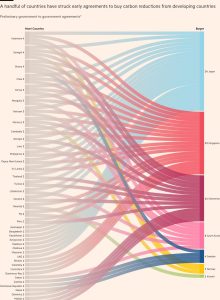Why has your Big Mac become so much more expensive?
Stay informed with free updates
Simply sign up to the US & Canadian companies myFT Digest — delivered directly to your inbox.
It’s being billed as a clash of the corporate titans. Last week McDonald’s filed suit against the four biggest US meatpacking companies, alleging that they had conspired to push up the cost of ground beef. But the issue at stake is one that is near and dear to the hearts of ordinary Americans. If inflation is finally slowing, why is everything from eggs and burgers to luxury hotel rooms still so expensive, and who is to blame?
One reason consumers feel so squeezed is what has come to be known as “cheapflation”. There is growing evidence that the prices of inexpensive goods rose faster than more expensive varieties of the same goods during the pandemic. Price differences between brand-name and discount versions significantly narrowed and have stayed that way.
That form of inflation punishes those consumers who are least able to absorb the pain. Shoppers who employ the traditional tactic of trading down to save money reap fewer benefits, says Harvard’s Alberto Cavallo, co-author of a study that used food price data from large store chains to document cheapflation in 10 countries including the US.
US consumers disgruntled by stretched budgets are pointing the finger at business: 58 per cent said big companies were taking advantage of inflation to push through price increases in the most recent FT-Michigan Ross poll. Democratic presidential candidate Kamala Harris has sought to capitalise on this resentment by promising the first ever federal ban on food price gouging.
The US Chamber of Commerce and other business groups are fighting back. They argue that the real responsibility for higher prices lies in mismatches between supply and demand during the Covid pandemic, geopolitical stress, rising labour bills and other input costs.
Indeed Cavallo says that he has not found evidence of “greedflation”, where retailers and manufacturers boost their margins by pushing up prices faster than their costs are rising. He posits another reason why cheaper goods rose fast. The makers of house brands and other cheaper goods have thinner margins and spend less of their budgets on marketing. So rising input costs flow straight to consumers and have a larger impact on the final tally.
Based on his experience as an Argentine, Cavallo warns against turning to price controls, but that does not mean governments should sit on their hands. The changing nature of today’s economy, which has seen many industries consolidate and turn to algorithmic pricing to maximise profits, could well be fostering new kinds of misbehaviour.
Meat is a good place to start looking. McDonald’s says that the average price of a Big Mac has risen 21 per cent since 2019, and higher meat prices accounted for a big chunk of pandemic-era food price inflation. The industry has also been a source of antitrust concern for more than a century. Theodore Roosevelt’s administration brought a landmark antitrust case in 1902, and questions have resurfaced repeatedly.
McDonald’s alleges that Cargill, JBS, National Beef and Tyson Food together control up to 85 per cent of market-ready cattle and are working together to hold down both their input prices and the total supply to increase their profits. Dozens of other restaurant chains, supermarkets and food distributors have also sued the big four over beef prices in recent years. The meatpackers generally deny wrongdoing, although JBS has settled with some of the plaintiffs.
The Biden administration is trying to tackle meat prices from a different angle, in a very modern take that could apply to a much wider range of industries. The Department of Justice is suing data company Agri Stats, claiming that it suppresses competition among pork, turkey and chicken processors by collecting and sharing confidential information about prices, costs and output. Agri Stats has denied wrongdoing and the case is heading to a 2025 trial.
Federal enforcers contend that data sharing and algorithms are also making it possible for less concentrated industries to collude. The DoJ recently sued real estate software company RealPage, alleging that its technology illegally allows apartment landlords to share non-public information and keep rents high. Competition watchdogs have also expressed official interest in private sector lawsuits against hotels and casinos over their use of pricing software that relies on industry data.
Judges have been sceptical of some of these claims, but antitrust enforcers and class action lawyers are right to press ahead. There is a difference between smart data mining and anti-competitive collusion. Consumers need to know that someone is policing the boundary.
Follow Brooke Masters with myFT and on X
#Big #Mac #expensive




